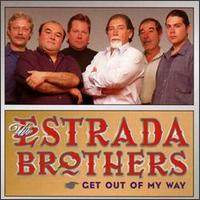
For two years he toured and recorded with pianist George Shearing. From his new home base in Southern California, Pass worked with many West Coast groups, including the bands of Bud Shank, Gerald Wilson, Bobby Troup, Clare Fischer, Earl Bostic, Les McCann, and others. He became an active studio player, working with such artists as Julie London and Frank Sinatra, before reemerging in 1962 with his first album, Sounds of Synanon.

As with many beboppers of the era, the jazz life took its personal toll on Pass and in 1960, after miscellaneous touring, a relocation to Las Vegas, and some time off the scene, Pass moved to Los Angeles. But the pianists of the 1940s and ’50s-especially Bud Powell, Al Haig, and Art Tatum-and such horn players as saxophonists Charlie Parker and Coleman Hawkins and trumpeter Dizzy Gillespie became models of improvisation for Pass as well.ĭuring that period, Pass had migrated to New York, and was gigging around town. Such others as Tal Farlow, Barney Kessel, and Jimmy Raney would also leave their impression on Pass, but Reinhardt, Christian, and later, Wes Montgomery, remained the “big three” in his pantheon of guitar inspirations. His early guitar influences were the gypsy phenomenon Django Reinhardt, whose style Pass has never really emulated, and the great Goodman discovery, Charlie Christian. “You have to have the instrument in your hand till it feels like an extension of yourself,” he told interviewer George Clinton, “and for me holding the guitar for seven hours a day-and hating it, did just that.”īy the time he was 14, Joe was playing parties and dances with a small string combo. Teaching himself scales and practicing them until they were second nature, Joe became as facile with the guitar as some boys are with a baseball bat. Joe’s father could sense the budding talent in his son and pushed Joe to practice from books, radio, records, and tunes that were whistled around the house. Soon he found himself practicing seven or eight hours a day. Young Joe, impressed by the six-string-slinging cowboy of the silver screen, Gene Autry, received his first guitar from a family friend, and started playing when he was nine years old. His Sicilian-born father, Mariano, made it a family goal that his children would not have to follow his footsteps into the steel mill.

Born Joseph Anthony Passalaqua in New Brunswick, New Jersey in 1929, Joe Pass grew up in a Pennsylvania steel town during the Great Depression.


 0 kommentar(er)
0 kommentar(er)
